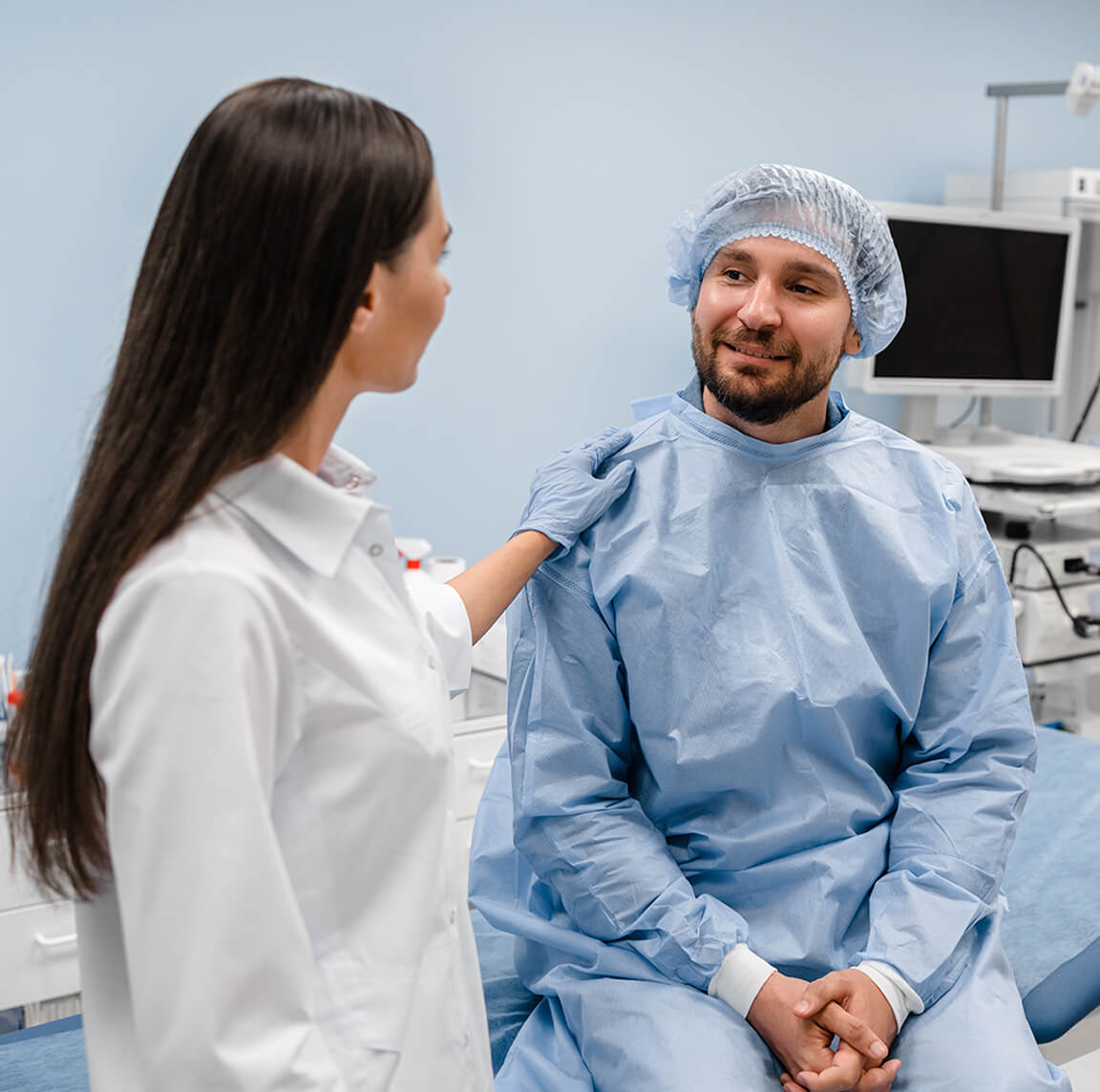

A colonoscopy is a procedure where a colorectal surgeon uses a long, flexible tube equipped with a light and camera, called a colonoscope, to examine the lining of the colon and rectum. This allows for the detection of abnormalities like polyps, inflammation, or bleeding, with the added capability to remove polyps or take tissue samples (biopsies) for further testing.
While the colonoscopy procedure in Singapore is generally safe, understanding the recovery process is crucial for anyone undergoing it. This article will detail the potential post-procedure side effects, offer ways to find relief, and highlight warning signs that require immediate attention.
Immediate After Effects
After a colonoscopy, patients are monitored in a recovery area until the sedative's effects largely dissipate. While the procedure itself typically lasts 30 to 60 minutes, recovery from sedation can take one to three hours.
During this time, some patients might experience light-headedness, mild memory lapses, or unsteadiness. For these reasons, arranging for someone to drive you home is essential. Once alert, stable, and cleared of any immediate complications, patients are discharged to recover at home.
Common Post-Colonoscopy Symptoms
Patients may experience mild and temporary symptoms as their body recovers from the procedure. Some common post-colonoscopy symptoms include:
- Abdominal Cramping: Mild, temporary discomfort in the abdomen is common after a colonoscopy and usually resolves within a few hours.
- Bloating and Gas: During the procedure, air may be inflated into the bowel for better visualisation. Your body needs time to expel this air, which can lead to feelings of fullness, tightness, and the need to pass gas afterwards.
- Light Rectal Bleeding: A small amount of bleeding may occur during the first bowel movement after a colonoscopy, especially if a biopsy was performed or a polyp was removed.
- Fatigue: Patients may feel fatigued and weak for a day or so after the colonoscopy due to both the sedation and the fasting required before the procedure.
Tips for a Comfortable Recovery
Recovering from a colonoscopy is usually quick and smooth, but some things must be kept in mind to ensure a comfortable recovery. Once safely home, here are some recovery tips to follow:
- Rest and Relax: Take it easy for the rest of the day to fully recover from sedation.
- Stay Hydrated: Drink plenty of fluids like water and clear broth to flush the sedative from the body and replenish what was lost during bowel preparation.
- Avoid Intense Physical Activity: Taking a short walk after resting can help relieve bloating and gas. However, abstain from heavy lifting or any strenuous activity for at least 24 hours after a colonoscopy.
- Gradually Resume Normal Diet: Eat light first, then slowly start reintroducing regular foods.
- Avoid Alcohol and Certain Foods: Continue to avoid alcoholic beverages as well as greasy or spicy foods, as they may irritate the digestive system.
When To Call a Doctor
While most people recover quickly after a colonoscopy, it is important to recognise signs that may require medical attention. Do not hesitate to contact your doctor immediately if you experience:
- High fever with chills
- Severe abdominal pain or swelling
- Nausea and vomiting
- Excessive rectal bleeding
- Inability to pass gas
- Chest pains
- Leg swelling
When Will You Get Your Colonoscopy Results?
You will likely receive immediate preliminary colonoscopy results if no polyps or tissue samples were taken. However, if biopsies were performed, detailed results from the lab may take a few days to two weeks, depending on processing time.
Should the results reveal any concerns, your doctor will explain the findings and recommend the appropriate next steps, which could include further tests, treatment, or follow-up care.
Colonoscopy is a commonly performed, minimally invasive procedure, but it typically requires a day or two of recovery. Understanding proper aftercare is essential for a safe and smooth recuperation. By knowing what to expect after a colonoscopy, patients can gain peace of mind and feel more in control of their healing process.
If you are considering a colonoscopy and seeking comprehensive care that extends beyond the procedure itself, our dedicated team is here to support you. For enquiries and appointments, please call 6262 1226.
About Our Colonoscopy Specialists
Mount Elizabeth Medical Centre, Singapore 228510











